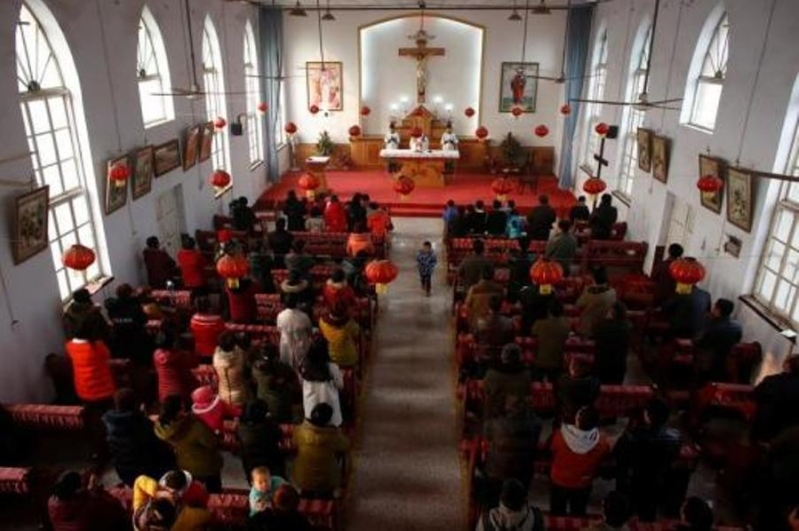
The Vatican has expressed "grave concern" for a Chinese bishop who has disappeared after being "forcibly removed" from his office several weeks ago.
As reported, Chinese Catholic bishop Peter Shao Zhumin was seized by authorities in May, and his family has been given no information on the reasons for his removal or his current whereabouts.
In a statement released on June 26, the Vatican said: "The Holy See is observing with grave concern the personal situation of Bishop Peter Shao Zhumin of Wenzhou, forcibly removed from his episcopal see some time ago," the Vatican said. "The diocesan Catholic community and his relatives have no news or reasons for his removal, nor do they know where he is being held."
The Holy See said it is "profoundly saddened for this and other similar episodes that unfortunately do not facilitate ways of understanding."
"We are all invited to pray for Bishop Shao Zhumin and the path of the Catholic church in China," the Holy See's statement concluded and expressed hope Shao may return as soon as possible to the diocese and "be assured the possibility of serenely exercising his episcopal ministry."
Last week, a Vatican-affiliated missionary news service said Shao's disappearance is believed to be part of an attempt to persuade him to join the Communist-controlled Chinese Catholic Patriotic Association church.
Since 1951, the Communist Party has refused the authority of the pope, with local Chinese Catholic bodies appointing their own bishops. China cut ties with the Vatican after the Communist Party took power and set up its own church outside the pope's authority.
The Chinese government has also introduced restrictive pieces of legislation, such as the Revised Regulations on Religious Affairs, which seeks to force house churches to join the state-run Three-Self Patriotic Movement. Churches that refuse to register are banned.
Shao was appointed by the pope in September and posted to Wenzhou in an effort by the Roman Catholic Church to bring about reconciliation between the two communities. He had previously served in a "reform-through-labor" camp for 16 years during the Cultural Revolution, Catholic News Service noted, and was imprisoned from 1982 to 1988.
The city of Wenzhou, where 120,000 Catholics live, has sometimes been called "China's Jerusalem," because of all its houses of worship.
Over the past several years, it has been targeted, alongside churches in other provinces, in a nationwide church demolition campaign by China's atheistic government. State officials have removed church rooftop crosses and demolished entire churches, which has led to protests and clashes with Christians. A significant number of pastors and human rights lawyers have been arrested and imprisoned for opposing the campaign.
Open Doors USA ranks China as the 39th worst country in the world when it comes to the persecution of Christians, according to the ministry's 2017 World Watch List.
"As Christians are the largest social force in China not controlled by the Communist Party, there are increasing efforts to bring them under state control," an Open Doors fact sheet states.






